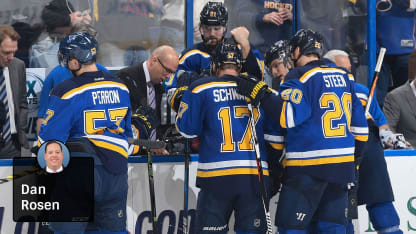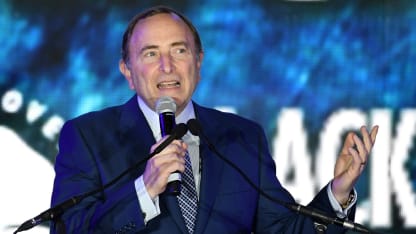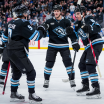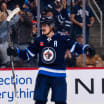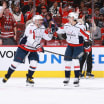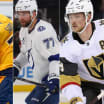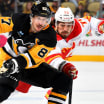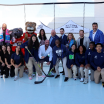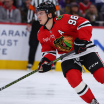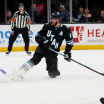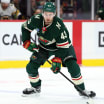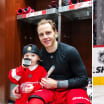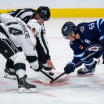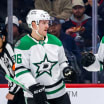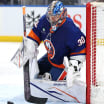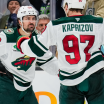The change needs approval from the Competition Committee and the NHL Board of Governors to become official.
"You're always trying to think about things that create offense, and that's another way for a coach to stall an opportunity to take advantage of a vulnerable situation," New York Rangers general manager Jeff Gorton said. "I think it's a pretty good thought."
The GMs understand there could be a player safety issue with forcing tired players to stay on the ice. It's possible that becomes a point of contention with the NHL Players' Association, which has representation on the Competition Committee.
"That was one of the topics that was discussed, and again there is a process that's in place here now for anything we talk about here to go through a different vetting process," Winnipeg Jets GM Kevin Cheveldayoff said. "Every idea has to start somewhere."
Cheveldayoff agreed that coaches tend to preserve their timeout in case they want to issue a coach's challenge. They must be in possession of their timeout to challenge a goal scored on a potential offside or goaltender interference play.
He said that was part of the reasoning of the GMs to go forward with the rule change recommendation.
"We don't see it much anymore, so let's make sure it just goes out of the way," Cheveldayoff said.
The GMs will recommend to the Competition Committee an adjustment on the location of a faceoff when a team on the power play is guilty of touching the puck with a high stick.
The current rule calls for the faceoff to be in the defensive zone. The GMs are recommending to move the faceoff to just outside the attacking blue line.
This recommendation also needs approval from the Competition Committee and the Board of Governors to become an official rule change.
Changes coming to schedule
In response to concerns from the GMs, NHL Commissioner Gary Bettman said the League will try to schedule the five-day extended breaks for each team, commonly referred to as bye weeks, in two segments next season so half the teams are off one week and the other half are off the next.
Teams were 10-16-4 in their first game back from their extended breaks in the schedule this season. Four teams (Rangers, Toronto Maple Leafs, Vancouver Canucks, San Jose Sharks) played the first game back from their break against a team also coming off its break.
"This way teams that were in the break can play each other the first couple of games," Commissioner Bettman said. "If this doesn't work any better and we still get the negative feedback that we got then I think we're going to have to consider getting rid of it."
